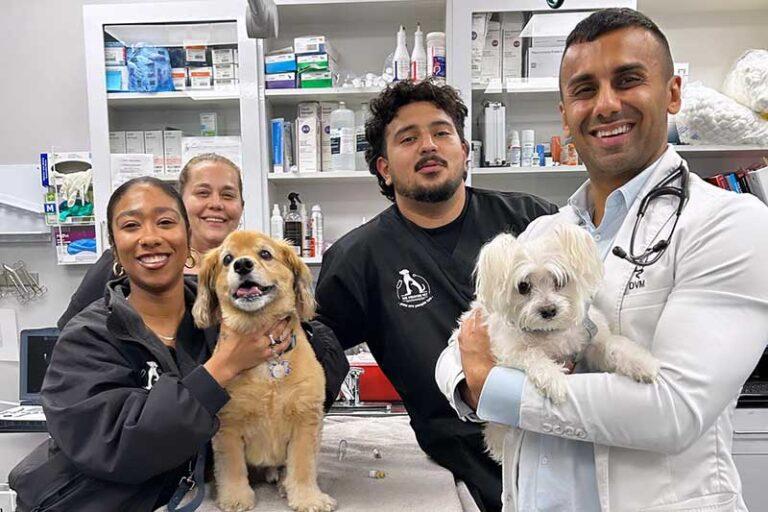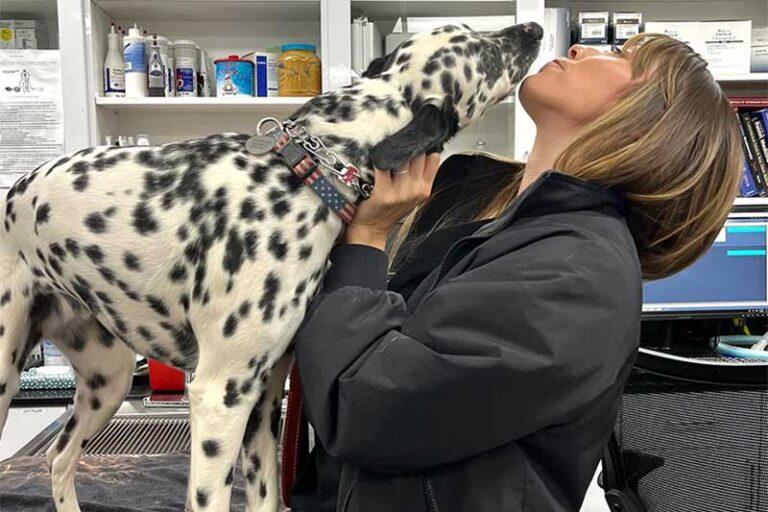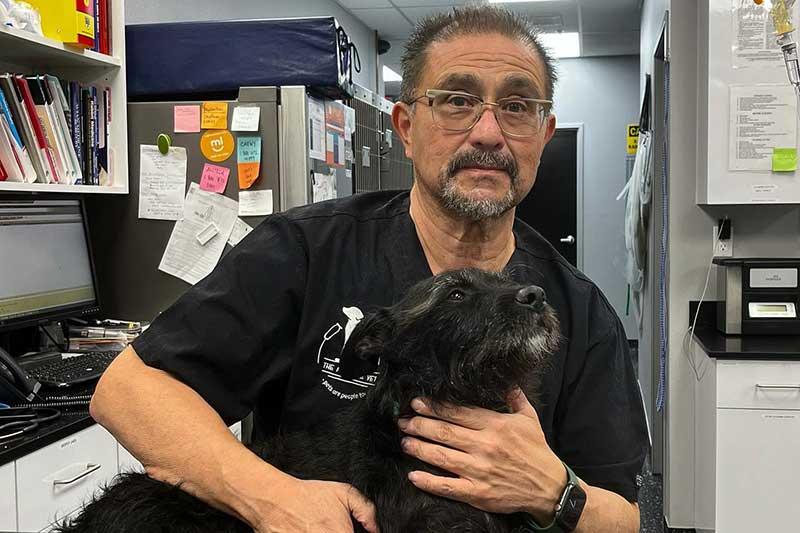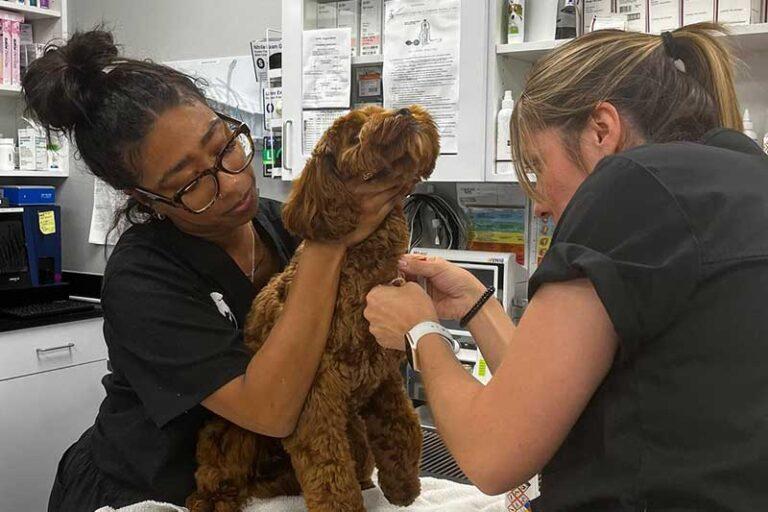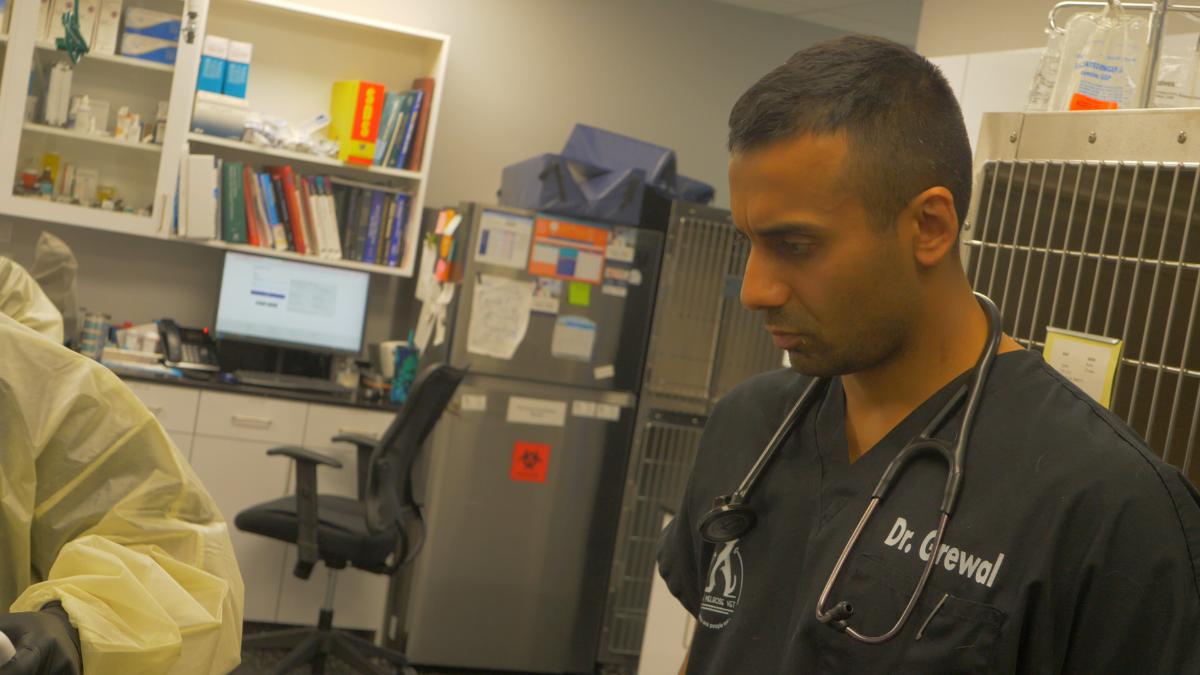We believe Pets are People too!
Your Veterinarian Serving Los Angeles, Beverly Hills, West Hollywood, and other nearby communities
We at The Melrose Vet in Los Angeles, CA, are your one-stop destination for pet surgery and pet care from a veterinarian near you. At our animal hospital, the focus is always on supporting your pet's health.
Pet Care
At our animal clinic, we strive to provide our patients with quality pet wellness care on each and every visit. We believe your pet's road to good health begins with a routine wellness exam.
Preventative Pet Wellness Care
During the examination, a veterinarian on our team can assess your pet's general health, provide necessary vaccinations, do an oral exam to determine any dental concerns, and recommend any tests to determine any medical issues. We can also check for flea and tick issues and recommend parasite prevention to help keep your pet pest-free.
Annual lab work is also part of our services, along with assessing and discussing any changes in your pets' behavior. If you have any questions, just ask our team. We encourage discussion so pet owners have the information needed to provide their pets with a healthy quality of life.
Pet Surgery
When a pet requires surgery, it can be stressful for the pet as well as its owner. The good news is that our trained team is ready to provide pet surgery when necessary. In our animal clinic, we will educate you on how best to prepare your pet for the surgery and how to take care of him afterwards. We are here to make sure everything goes smoothly and you can go back to having quality time with your pet.
Urgent Care
Unexpected things can happen that result in your pet requiring urgent care. One of the most important advantages of having a veterinarian near you is knowing your pet friend can get the help needed. At The Melrose Vet, you can rely on us to provide your pet with care and treatment in case something happens. You don’t need to be afraid when we are to give your pet the support he needs.
Get Pet Wellness Care and Pet Surgery from a Veterinarian Near You at Our Animal Hospital
We at The Melrose Vet in Los Angeles, CA, are here to help keep your pet happy and healthy. Give our team a call to schedule an appointment. Call us at (323) 310-5555 for pet wellness care and pet surgery from a veterinarian near you at our animal clinic.
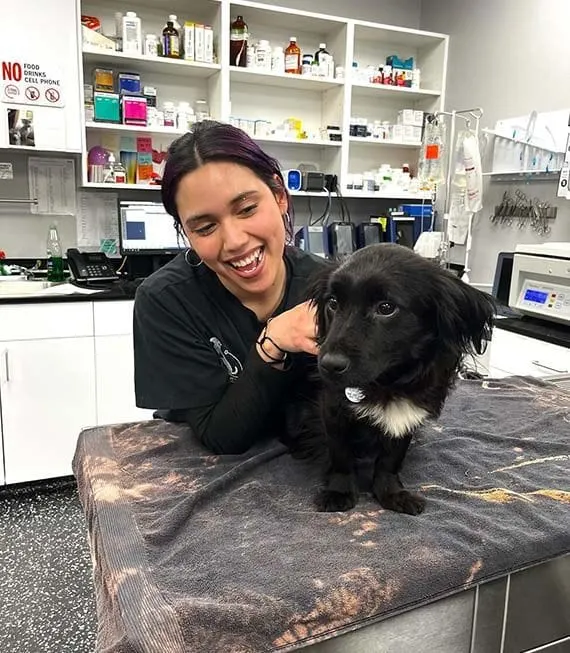
Exceptional Vet Care for Your Pets
At The Melrose Vet in Los Angeles, We Can't Wait To Meet You and Your Pet.
Get High-Quality Pet Care at Your Vet Clinic in Los Angeles
At our veterinarian clinic in Los Angeles, CA, we offer high-quality pet care services. From routine checkups and vaccinations to surgery and dentistry, we have everything you need to keep your pet healthy and happy. Schedule an appointment today!
Undefeated Pet Expert
In order to make our patients as comfortable as possible when they walk into our office, here at The Melrose Vet, Dr. Grewal makes it a goal to treat all patients as if they were his own. That means that we are going to keep them as healthy as we possibly can and, if they are sick, we will do our best to help them through their illness.
Veterinary Game-Changer
We also strive to ensure that pets and their owners are comfortable in our office. There is nothing worse than animals that are scared to go to the veterinarian, except for owners who feel like they cannot discuss things with the veterinarian. Our veterinarians and staff want to put you at ease. We are here to answer any questions you may have.
Why The Melrose Vet?
When choosing the perfect veterinary clinic for your beloved furry friend, The Melrose Vet stands out as the ultimate choice. Our compassionate and highly-skilled veterinarian team is dedicated to providing exceptional medical care and fostering a warm and welcoming environment for both pets and their owners.
With years of experience addressing diverse pet health issues ranging from routine check-ups to emergency care and surgeries, our staff brings expertise and understanding to every appointment. We also strive to remain up-to-date with cutting-edge advancements in veterinary medicine, ensuring that your pet receives the most advanced and effective care possible.
At The Melrose Vet, we understand that your pets are cherished members of your family, and we’re committed to ensuring their health and happiness through unparalleled veterinary care. So, choose The Melrose Vet, and witness the difference we can make in your pet’s life!
The Latest News
Get the latest pet stories, news, tips and advice right here.
Contact Us
Location and Hours
8304 Melrose Ave, Los Angeles, CA, 90069
Monday
8:00 am - 7:00 pm
Tuesday
8:00 am - 7:00 pm
Wednesday
8:00 am - 7:00 pm
Thursday
8:00 am - 7:00 pm
Friday
8:00 am - 7:00 pm
Saturday
10:00 am - 7:00 pm
Sunday
10:00 am - 7:00 pm






